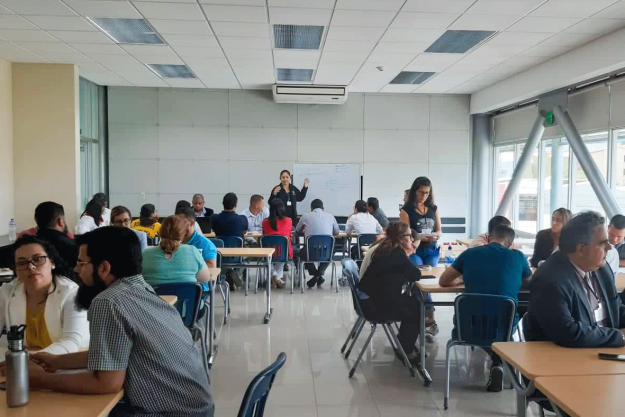
Participants at a training seminar on chemical safety and security management in San José
THE HAGUE, Netherlands — 24 July 2018 — Chemistry and chemical engineering professionals from Latin America and the Caribbean are better equipped to manage chemical threats after a training seminar on chemical safety and security management in San José, Costa Rica from 15 – 18 July, conducted by the Organisation for the Prohibition of Chemical Weapons (OPCW).
University of Costa Rica’s Vice Rector, Dr Fernando García, inaugurated the event in the presence of representatives from the National Authority of Costa Rica and distinguished academics. In his opening statement, Dr García stressed that it is important for “representatives of the Latin America and the Caribbean region to exchange knowledge and experiences related to chemical safety and security”.
OPCW Senior Programme Officer, Mr Rohan Perera, added that: “Learning how to reduce and eliminate the safety and security risks at chemical plants is essential for preventing chemical accidents and the potential misuse of chemicals”.
The workshop presented scenario-based strategies to analyse chemical safety and security threats, identified gaps in national policies, and worked on developing mitigation strategies to prevent the misuse of chemicals.
Thirty-one attendees who came from 16 OPCW Member States discussed the strengths and weaknesses of chemical safety and security management and mechanisms to develop effective action plans to alleviate chemical-related incidents in the region.
Other topics included industry outreach, chemical safety and security risk assessment for accident prevention and preparedness, chemical toxicology assessment, and chemical threat mitigation strategies and challenges in chemical industry verification.
Background
As the implementing body for the Chemical Weapons Convention, the OPCW, with its 193 Member States, oversees the global endeavour to permanently eliminate chemical weapons. Since the Convention’s entry into force in 1997, it is the most successful disarmament treaty eliminating an entire class of weapons of mass destruction.
Over 97% of all chemical weapon stockpiles declared by possessor States have been destroyed under OPCW verification. For its extensive efforts in eliminating chemical weapons, the OPCW received the 2013 Nobel Peace Prize.
